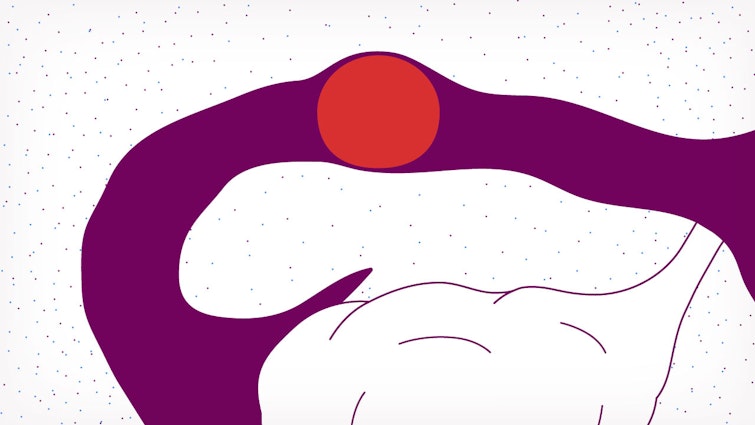7 Sex Hormone Facts Everyone Should Know
Join us as we take a look at some fascinating facts about male and female sex hormones, from how they affect our sex drive to the surprising knock-on effects they can on our bodies including hair growth and even changes to body temperature. Read on to find out more…

1. Testosterone is a male AND a female sex hormone
The sex hormone testosterone is often associated with machismo and male sex drive, and while this is the main male sex hormone responsible for sperm production and changes in the male body during puberty, it also has an important role in female reproductive health too.
In fact, testosterone is responsible for the production of the main female sex hormone estrogen. Testosterone is also important for the growth and repair of our reproductive tissue… who knew?
2. Our libido is controlled by our brains
While sex hormones are mostly produced in the ovaries in females and the testes in males, these substances aren’t confined to our reproductive organs, in fact our sex hormones are regulated by the pituitary gland in the brain. The pituitary gland sends signals around the body which start or stop the production of sex hormones. This means that an increase or decrease in libido can be a driven by what’s happening in the brain, not just the body!
Although physiology plays an important role, psychology is known to also affect libido. Stress can increase or decrease libido, depending on the individual so it's important to consider mental health when we think about our libido levels. Did you know that our well-being doesn’t just affect our sex drive? In fact, stress can affect the menstrual cycle too, causing missed periods and even anovulatory cycles.
3. Hormones affect much more than our reproductive health
An increase in sex drive can be directly linked to our sex hormones, but that’s not the only effect that’s driven by these complex substances. In fact, we may see changes happening in the body that can seem entirely unrelated but may in fact be caused by subtle shifts in hormone levels.
For example, you might notice your skin changes throughout the cycle. Skin around menstruation typically tends to be more oily, whereas skin in the lead-up to ovulation can be visibly glowing! Skin and hormones are more closely linked than many of us may realize, and the hormonal changes to our skin’s appearance and feel are caused by the sex hormones estrogen and progesterone.
4. Sex hormones can affect our moods too
Some signs of sex hormones are not so visible, but are just as noticeable to those experiencing them! As well as causing physical changes, our hormones can have a direct impact on our moods, as anyone whose ever experienced premenstrual syndrome (PMS) can testify!
PMS is very real and is caused by an increase in the female sex hormone progesterone, symptoms include sensitivity, mood swings and tiredness. On the flip side, the sex hormone estrogen can lead to good moods in the days before ovulation, during this time it’s common to experience increased energy and positive emotions such as contentment and happiness.
5. Progesterone prepares the body for pregnancy
While progesterone can be the cause of some unpleasant symptoms towards the end of our cycle, it has a very important function. This hormone prepares the body for pregnancy every month by keeping the uterus lining thick to promote the implantation of a fertilized female egg cell.
If an egg cell implants, then progesterone levels stay high and the hormone helps support our bodies throughout early pregnancy. If implantation doesn’t happen, then progesterone levels drop, the uterus lining sheds and a new cycle begins on the first day of our period.
6. Our sex hormones are finely balanced
It’s amazing to think about all the things our hormones do for us, from complex functions to triggering small changes within our bodies, these substances help keep everything in tune and working properly. Sometimes this delicate harmony breaks down and this can cause hormonal imbalance.
Our bodies are complex, so keep in mind that an imbalance of hormones can also be a symptom of other conditions such as PCOS (polycistic ovary syndrome). It’s always a good idea to talk with a healthcare professional if you have any questions or concerns about your hormone levels or other topics covered in this article. Read up on the symptoms of female hormone imbalance to learn more..
7. Hormones affect our body temperature
Did you know that hormones can have a direct affect on body temperature during the menstrual cycle? That’s right, there’s a small yet detectable rise in body temperature that happens directly after ovulation. This is caused by the hormone progesterone and body temperature stays high until the end of the cycle when progesterone levels drop again.
This small physical sign of hormonal changes, may seem incidental, but it can actually be the key to finding your fertility. If you’re able to detect this rise in temperature then you can work out where you are in your cycle! That’s where Natural Cycles comes in, our app uses temperature data to find your fertile days to help you plan or prevent pregnancy depending on your fertility goal.
Get to know your cycle better
Thanks for reading up on our seven facts about sex hormones! Hopefully, you’ve learned lots about these important players in our reproductive health. The Natural Cycles app is packed full of educational content that’s tailored to you. Whether you’re looking to start a family or want a hormone-free birth control method, why not find out if the FDA cleared app could work for you?


